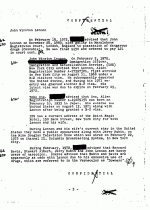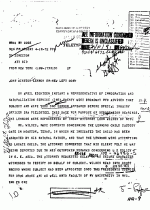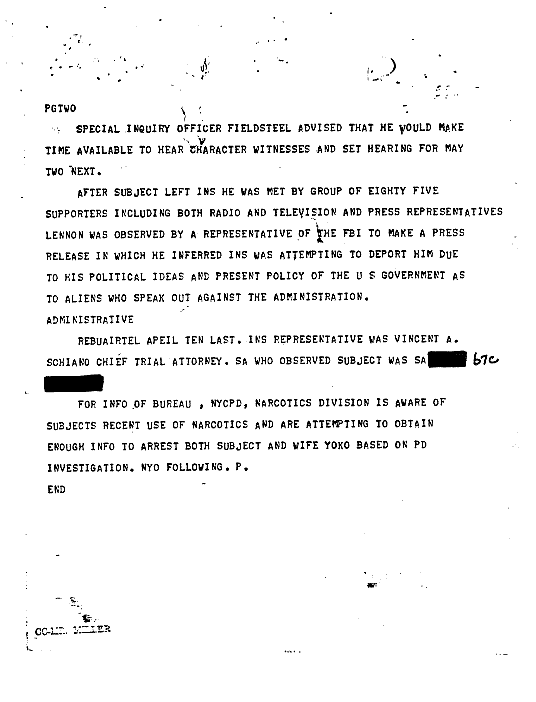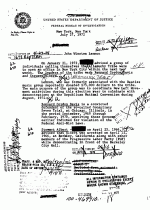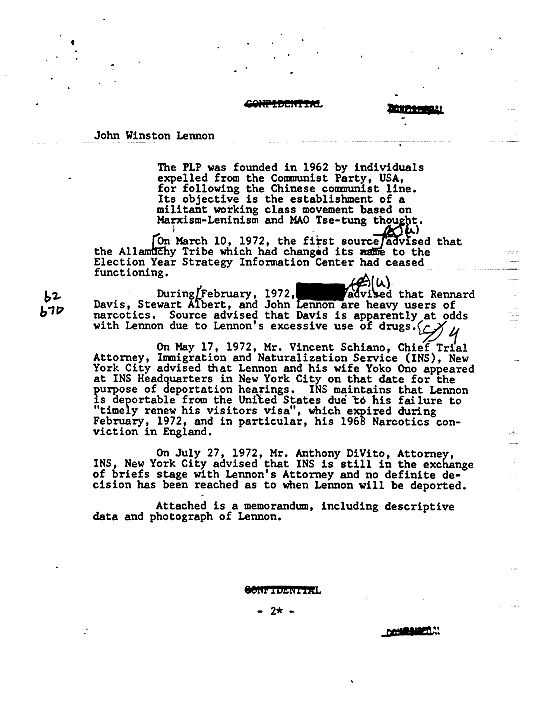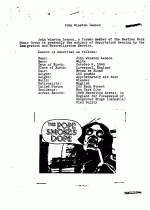View Document
Beatle Battle: The Fight For John Lennon's FBI File
-
Beatle Battle: The Fight For John Lennon's FBI File
-
Beatle Battle: The Fight For John Lennon's FBI File
-
Beatle Battle: The Fight For John Lennon's FBI File
-
Beatle Battle: The Fight For John Lennon's FBI File
-
Beatle Battle: The Fight For John Lennon's FBI File
-
Beatle Battle: The Fight For John Lennon's FBI File
-
Beatle Battle: The Fight For John Lennon's FBI File
-
Beatle Battle: The Fight For John Lennon's FBI File
-
Beatle Battle: The Fight For John Lennon's FBI File
-
Beatle Battle: The Fight For John Lennon's FBI File
Jon Wiener is our kind of guy. For 14 years, the California history professor has battled to force the FBI (pursuant to the Freedom of Information law) to open its files on the late John Lennon. And Wiener, author of the 1984 book "Come Together: John Lennon in His Time," has scored a smashing, if long overdue, victory. In late-September, the FBI gave him most of the balance of Lennon's file (the bureau still refuses to release a handful of pages) and agreed to pay $204,000 in legal fees incurred during Wiener's court fight to secure the records.
The released documents, which date back to 1971-72, indicate that agents began monitoring the ex-Beatle because they believed (mistakenly, as it turned out) that Lennon might try to disrupt the 1972 Republican National Convention (which nominated Richard Nixon for a second term as president). What follows is a selection of Lennon documents released by the FBI and provided to The Smoking Gun by Wiener, who happens to maintain his own web site.
Here's a brief description of the documents, which total ten pages and follow consecutively:
Pages 1-2: March 1972 memo on Lennon drug use, radical nature.
Pages 5-6: April 1972 memo on singer's "recent tactics."
Page 7: July 1972 memo advocating Lennon drug arrest.
Pages 8-10: July 1972 summary letter on Lennon and anti-war pals

